Heavenly Ever After continues to thrill with its blend of reincarnation drama, karmic relationships, and afterlife narrative. In episodes 9 and 10, the show dives deeper into the mysterious ties that bind its characters. Moreover, it asks whether destiny or choice truly governs our connections beyond the grave. As our protagonists confront shocking truths, the stakes rise—and so do the tears. Ultimately, this review will unpack every twist, explore the characters’ journeys, and offer fresh insights on life, death, and what may lie beyond.

TL;DR
- Detective’s death impacts Nak-jun’s search for his son.
- Hae-sook’s jealousy creates conflict in the afterlife.
- Young-ae confronts her past and discovers surprising connections.
- Forgiveness transcends karmic rules in a mother-daughter reunion.
- Unlikely spiritual bonds emerge, like the pastor and Hae-sook.
- Som-yi’s recovered memories reveal a troubled past with Nak-jun.
- Heavenly lottery highlights satire and the power of deception.
1. Fate’s Dark Joke: The Detective’s Sudden Demise
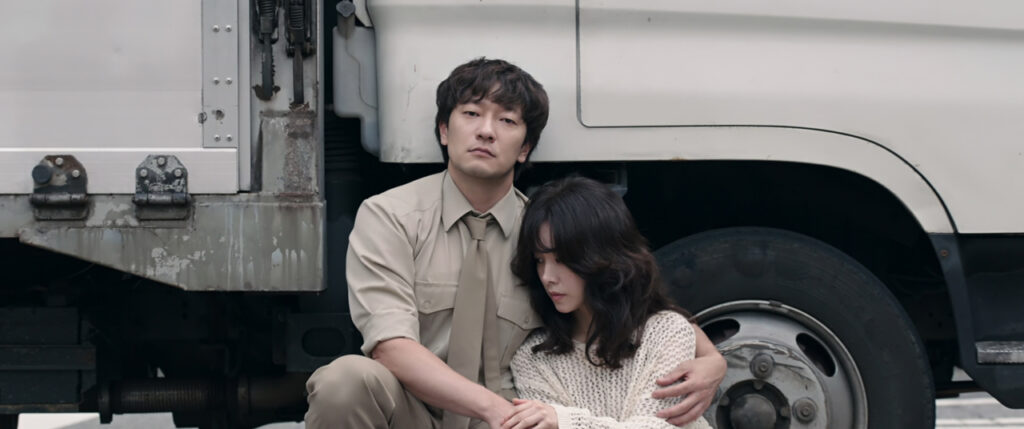
First, Nak‑jun tracks down the detective who holds clues to his missing son, Eun‑ho. However, karma intervenes—literally. When the detective darts away, he’s struck by a speeding truck. Then, just as Nak‑jun tries to help, the dying man lashes out in anger. Suddenly, a red‑eyed Som‑yi—our enigmatic reaper in training—snatches him by the throat. Moments later, a proper Reaper arrives to claim the body. Yet Som‑yi won’t release her grip. Consequently, she nearly vanishes from existence.
Despite Nak‑jun’s calming presence, they realize they’ve missed the train back to the afterlife. Therefore, Nak‑jun faces the ultimate bureaucratic punishment: demotion. In other words, he loses his job, his access to the human world, and his side mission to uncover Eun‑ho’s fate. Sadly, the detective’s death severs the one thread linking Nak‑jun to his son.
Additionally, this scene highlights one of the show’s core themes: in a world driven by reincarnation and karma, no event is random. Every life—and death—feeds a greater tapestry. Meanwhile, Som‑yi’s impulsive rescue underscores her growing attachment to Nak‑jun and the human realm. Could this be the beginning of her greatest sin?
2. Hae‑sook’s Delight: Jealousy in Heaven
When Nak‑jun breaks the news of his unemployment, his wife, Hae‑sook, can scarcely contain her glee. Initially, one might expect sympathy. Instead, she cheers. Why? She discovered flower rings in Nak‑jun’s pockets. Suspicious of a budding romance between Som‑yi and her husband, Hae‑sook seizes this as proof that they must be kept apart.
Consequently, she celebrates Nak‑jun’s demotion. However, her triumph is tempered by guilt. After all, she should be the supportive spouse—even in heaven. Yet her victory dance reveals a darker truth: she’s begun to view Som‑yi as a rival. Meanwhile, Som‑yi’s subtle glances toward Nak‑jun only fuel Hae‑sook’s paranoia. Ultimately, this tension promises fireworks in upcoming episodes.
3. Young‑ae’s Confrontation: Facing Paternal Demons
Next, we turn to Young‑ae. She’s long believed that she and the center president share an unbreakable bond. At least until this episode. During a final visit, she instead encounters her abusive father—now condemned to experience “paternal love” as punishment. Just hearing his voice sends her spiraling into panic.
Suddenly, the tough adult we know reverts to the frightened child who once hid in closets. In a moment of desperate courage, she confronts her father alongside the center president. She demands to know why she, the victim, must forgive her abuser. Her question hangs in the air.
Surprisingly, the answer isn’t what she expects. The president reveals that her tie to her father extends far beyond this lifetime. Back in a past incarnation, Young‑ae was Hae‑sook’s mother. And Hae‑sook’s birth parents. This revelation shatters Young‑ae’s world. Greed once drove her actions. At the time, she longed to be a mother. Yet her change of heart came too late. With this ironic twist, she now realizes that she failed the very person who once saved her life.
4. A Bittersweet Reunion: Young‑ae and Hae‑sook
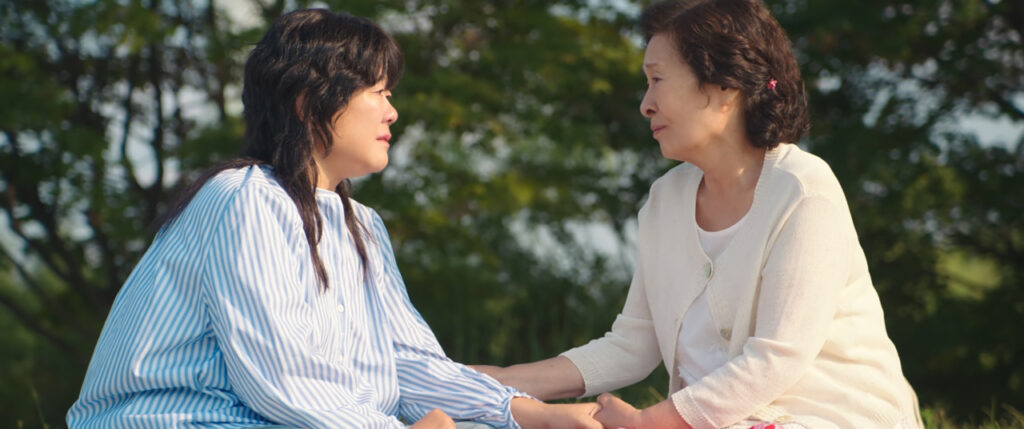
Following the shock, Young‑ae and Hae‑sook share a quiet picnic in heaven. Here, Hae‑sook urges Young‑ae to embrace life fully and promises to meet again in another incarnation. At first, resentment lingered between them. After all, the mother who should have protected her never did. Yet Hae‑sook’s tears and confession heal old wounds. In a fleeting moment, they exist as mother and daughter simultaneously. Then, Young‑ae’s spirit glows—and vanishes. Miraculously, she awakens from a three‑month coma in the living world.
This reunion ranks among the series’ most emotionally resonant scenes. Not only does it reveal past‑life ties, but it also shows forgiveness’s power to transcend even the strictest rules of karma. Above all, it reminds us that healing can begin when we confront the past head‑on.
5. The Pastor’s Awakening: From Silence to Revelation
Meanwhile, the church pastor has his own epiphany. After conversing with the center president, he discovers the power of silence. In fact, he realizes that his prayers have been answered all along. In a tearful moment, he addresses Hae‑sook as “mom.” Understandably, she’s stunned—she’s never had children in this life. The pastor laughs it off as a prank. Yet the sincerity in his eyes suggests something deeper at play.
Here, the show cleverly explores another parent‑child dynamic—one born, perhaps, of spiritual rebirth rather than blood. Moreover, it underscores the motif of unlikely connections. After all, in a drama about reincarnation, even a simple “mom” can carry worlds of meaning.
6. Som‑yi’s Memories: A Marriage of Misfortune
Back at the Nak‑jun household, Som‑yi’s suppressed memories resurface. Firstly, she recalls a son named Eun‑ho. Then, piecing together fragmented visions, she accuses Nak‑jun of selling their child for illegal adoption. She remembers him meeting the detective and, worst of all, drowning her during a past life.
True to form, Nak‑jun reacts with confusion and anger. Som‑yi retreats, smashing a cup against his head before fleeing. Left alone, Nak‑jun mourns her absence. He mutters to the center president: “You knew all along.” This line confirms what fans have long suspected—the president has been pulling strings from the shadows.
This arc raises essential questions about Som‑yi’s identity, her bond with Nak‑jun, and the true fate of Eun‑ho. Additionally, it underscores how the past can seep into the present—even when memories are buried in another lifetime.
7. Heaven’s Lottery Festival: Drama Meets Competition
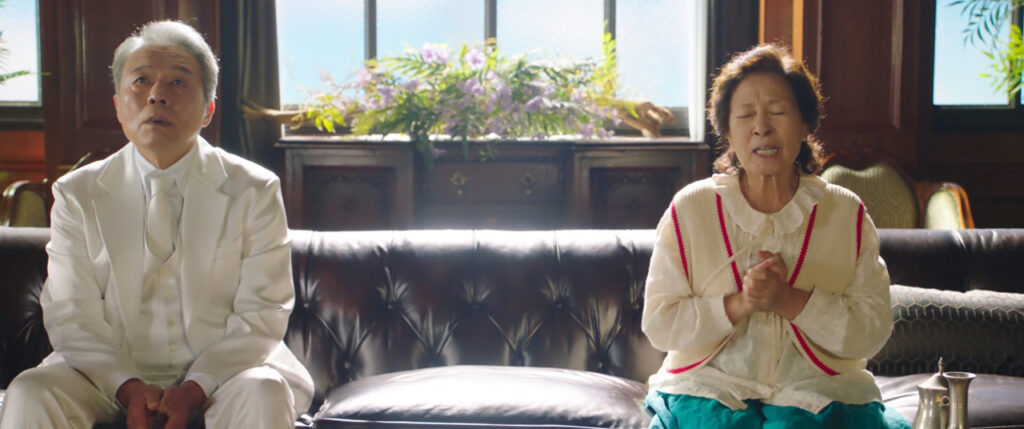
Onward to the festival everyone’s been buzzing about. Heaven’s lottery festival lets dwellers drop into human dreams to reveal winning numbers. For Hae‑sook, this is a chance to leave a legacy for Young‑ae. The rules sound straightforward: find a hidden key, claim a participation ticket, then convince onlookers your sob story deserves the most votes.
Unfortunately, Hae‑sook’s key hunt yields nothing. Even her attempts to bribe the center president fail. Yet prayer works where money doesn’t. The pastor’s earnest appeal summons a key from the sky—proof that faith can outperform schemes.
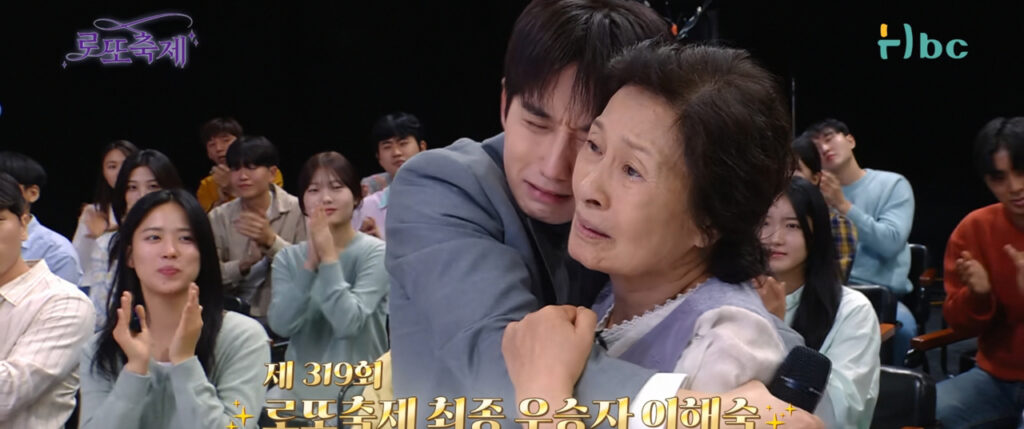
Finally, Hae‑sook enters the contest as the last participant. On live broadcast, she mercilessly critiques her competitors’ tragedies, and one entrant folds in defeat. Still, the fifth participant—a wife pleading for reunion with her hell‑bound husband—earns 99 votes. At this point, even Hae‑sook’s own hardships elicit only yawns.
8. The Final Pitch: When Lies Win Hearts
As hope dims, Hae‑sook unveils her trump card: the pastor. He recounts a childhood memory—a lonely five‑year‑old shivering on a cold street. Then Hae‑sook delivers the shocker: she was that mother. The audience gasps. The pastor sheds crocodile tears. In one swift move, Hae‑sook claims victory.
However, heaven’s rules prohibit lies. A PD calls for her disqualification. Yet the center president intervenes. “Lies are not permitted in heaven,” he says, “but truths can be stranger than fiction.” Consequently, Hae‑sook remains the winner. Ironically, a fabricated sob story triumphs over genuine sorrow.
This sequence underlines the show’s satirical edge. Even in a realm governed by karma, spin and showmanship can triumph over authenticity. Moreover, it offers commentary on reality‑TV culture and the human craving for spectacle.
9. Themes & Worldbuilding: Buddhism, Christianity, and the Burden of Logic
Despite the Christian iconography—crosses, churches—the show’s core philosophy skews Buddhist. Reincarnation, karma, and enlightenment drive the narrative. Yet the writers sprinkle in Christian elements, creating an uncanny spiritual cocktail. This blend sometimes muddles the show’s intentions. For instance, characters preach individual agency, but the omnipresent weight of fate undermines free will.
Furthermore, discussions about systemic injustice are absent. The focus remains on personal redemption. While this approach empowers the protagonists, it sidesteps broader questions about societal suffering. Still, worldbuilding excels in smaller details: the heavenly bureaucracy, the afterlife’s architecture, and the rules governing ghostly interventions. These touches keep the internal logic consistent—until it isn’t.
10. Character Dynamics: The Heart of the Story

Above all else, Heavenly Ever After thrives on relationships. The complex triangle between Nak‑jun, Hae‑sook, and Som‑yi drives every twist. Each harbors secrets, longings, and regrets. Their interactions brim with tension and tenderness in equal measure.
Young‑ae’s subplot offers a powerful counterpoint. Her transformation from victim to empowered survivor highlights the show’s message: facing pain can free us from its chains. The pastor’s quiet evolution, from devout supplicant to spiritual guide, provides a gentle foil to the high‑stakes drama.
Moreover, the performances elevate the script. Kim Hye‑ja and Lee Jung‑eun deliver heart‑shattering portrayals of mothers and daughters entangled across lifetimes. Their final picnic scene—two souls reconciling through tears—stands as the show’s emotional peak.
12. Personal Point of View
Personally, I’m torn. On one hand, the destined encounters are brilliantly orchestrated. Each reunion carries emotional weight. Yet on the other hand, the sheer number of fated ties risks stretching credibility. When every major relationship traces back to a past life, it undermines the idea of fresh starts.
Still, I remain captivated. The show excels at weaving humor into tragedy—take Hae‑sook’s gleeful sabotage of Nak‑jun’s career, or the absurdity of praying for a dropped key. These moments balance the heavier themes of child loss, abuse, and betrayal. Plus, the actors bring enough nuance to sell even the most far‑fetched twists.
Looking ahead, I’m most curious about Som‑yi’s true identity. If she really is Hae‑sook in disguise, that revelation could reframe the entire narrative. Moreover, it raises uneasy questions about memory, guilt, and forgiveness. I hope the writers resist the urge to tie everything neatly with a bow. Instead, let the characters grapple with the fallout of their choices—both past and present.
13. Conclusion & Anticipation
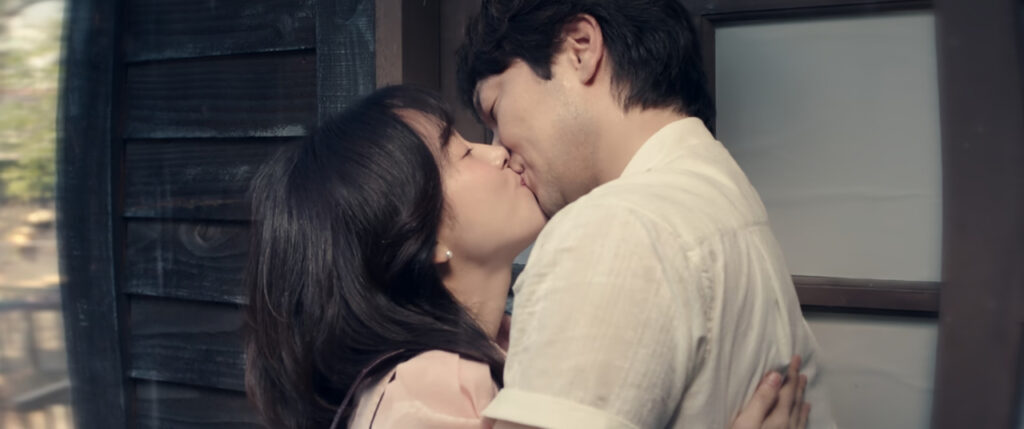
Episodes 9 and 10 of Heavenly Ever After deliver high‑stakes drama, emotional catharsis, and plenty of cosmic intrigue. We’ve witnessed detective deaths, heavenly demotions, past‑life confessions, and a cutthroat lottery festival. Along the way, the series has explored themes of destiny, redemption, and the blurred line between truth and fiction.
In the final two episodes, the show faces its greatest challenge: wrapping up these complex threads without sacrificing emotional sincerity. Can Nak‑jun reclaim his purpose? Will Som‑yi uncover the full truth about Eun‑ho? And, ultimately, will Hae‑sook find peace in both love and motherhood?
Whatever happens, one thing’s certain: Heavenly Ever After remains a must‑watch for anyone fascinated by reincarnation drama, karmic relationships, and inventive afterlife storytelling. So buckle up for the finale, and prepare to have your heartstrings—and perhaps your very beliefs—twisted one last time.







